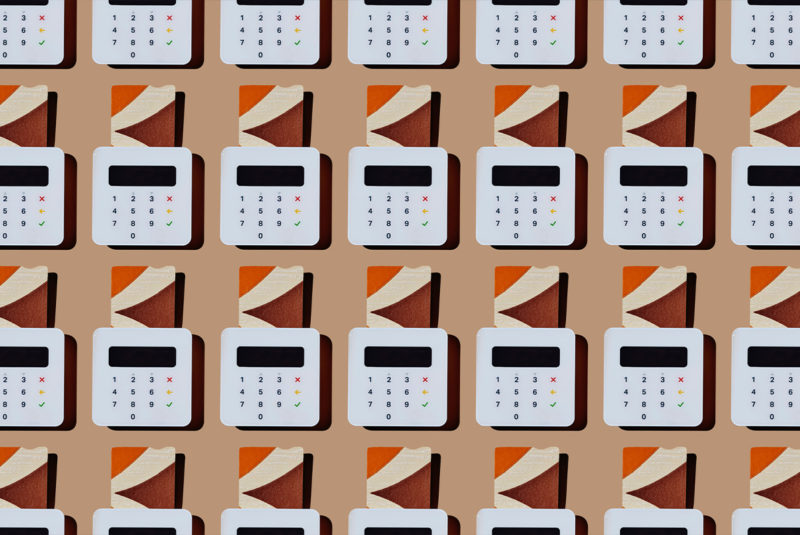There are hundreds of retail credit cards, and we’ve only listed our best card picks for certain categories. Even if your favorite store isn’t listed, it might still offer a credit card. Check out their website or call to find out. Store credit cards can provide valuable cash back and benefits. But for the most part, they’re only useful at their co-branded stores.
What Are the Best Store Credit Cards?
There is no “best” retail store card, just like there is no “best” store. A better question might be: What’s your favorite store, and does it offer a credit card?
Here are some of our favorite store credit cards, co-branded with big names that just about anyone could find useful:
- Amazon Prime Rewards Visa Signature Card
- American Eagle Real Rewards credit card
- Belk Rewards Mastercard®️
- BJ’s Perks Elite® Mastercard®
- Bloomingdale’s American Express® card
- Cabela’s CLUB Mastercard®
- Dillard’s American Express®️ card
- Express credit card
- Gap Good Rewards Credit Card
- JCPenney Credit Card
- Kohl’s Card
- Lowe’s Advantage Card
- Macy’s American Express® Card
- Neiman Marcus Credit Card
- Nordstrom Visa Signature® card
- Pottery Barn Key Rewards Card
- SaksFirst World Elite Mastercard®
- Sam’s Club® Mastercard®
- Target REDcard™
- TJX Rewards® Platinum Mastercard
- Victoria’s Secret Credit Card
- Walmart Rewards™ Mastercard®
- Wayfair Credit Card
Where Can I Use Store Credit Cards?
Many store cards are limited. There are limits on where you can use them or how you can redeem rewards. And they typically have worse terms (like higher APRs) than the normal rewards cards you can get from big banks.
There are two basic types of store credit cards. They are sometimes referred to as:
- Open-loop cards: These cards can be used anywhere and have the Visa, Mastercard, American Express or Discover logo at the bottom right of the card.
- Closed-loop cards: These cards can only be used with the co-branded merchant and sometimes with affiliates. There is no Visa or Mastercard logo.
Open-loop cards are more useful because you can use them anywhere credit cards are accepted. But you might find a closed-loop card useful if it has features you value.
Store credit cards are like any regular credit card, except for the open-loop and closed-loop distinction. You can usually apply for them either in-store or online. You don’t always need excellent credit scores. Many store cards are attainable for people with average or even poor credit scores.
Retail store credit cards are a fairly good option for building your credit scores if you’re a huge fan of a certain store. But you should consider other options if you’re planning to carry a balance, as their interest rates can get pretty high.
If your card doesn’t provide good rewards at a particular store and you don’t have the store’s co-branded card, you may be able to earn decent rewards less directly. Use a credit card at a different store to buy a gift card for that first store, earning rewards on the gift card purchase instead. Then you can use that gift card to shop at the first store. But watch out: Some cards have terms that prevent you from earning rewards on gift cards.
Do Store Credit Cards Build Credit?
In most cases, yes. Like any other credit card, a store credit card can typically help you build up your credit and improve your credit scores.
That’s because store cards usually report your card activity to the three major credit bureaus: Equifax®, Experian™ and TransUnion®.
Many store cards are issued by Synchrony or Comenity (now Bread Financial). Both issuers report to the three major bureaus. If you’re not sure how a store card reports activity, you can contact the issuer to ask.
How Do I Apply for a Store Credit Card?
You can usually apply for store credit cards the same way you’d apply for any other credit card by filling out an application online.
In many cases, you can also apply for a store’s credit card in its store. Just ask an associate. Or you might be offered (or pressured) to get a store card during checkout with the powerful lure of a one-time discount or coupon.
Because credit card decisions shouldn’t be made impulsively, it’s a good idea to hold off on any offers you get while you’re checking out. Credit cards are major financial instruments. You shouldn’t get one to save a few bucks on the spot.
Take some time to consider your options, including cash-back cards and other store cards. Survey the vast selection of cards on the market and consider getting one that works for you at more than one particular store.
What’s the Easiest Store Credit Card To Get?
The easiest store card to get might be the WebBank/Fingerhut Credit Account. It has a reputation for being available to people with bad or limited credit to help rebuild their credit.
But store cards are generally easier to qualify for than typical rewards cards. So you may find that you qualify for store cards when others have denied you.
However, store cards aren’t the only option if you’re trying to establish a solid credit history or improve low credit scores. Check out secured credit cards, which can be used pretty much anywhere. There are also unsecured cards for customers with bad credit that can help.
Expert Q&A
1. What are some reasons to consider getting a retail store credit card?
Rob Simon, Associate Professor of Practice, Department of Marketing, The University of Nebraska-Lincoln
There are three reasons for getting a retail store credit card. The first is if they offer a no-interest credit card. This is very infrequent, but Von Maur in the Midwest offers one. This is a no-brainer to get one of these cards if you like their merchandise.
The second is if you are trying to build up your credit history. These cards can be easier to get than major credit cards like Visa and help build up credit history if you are new to the credit market.
The third is if there is a very significant offering for opening a new account with a certain company. For most companies, a retail store credit card is just a co-branded card with Visa, etc., so I would only get one in this situation if it is a highly significant offering.
Yiyuan (Ava) Liu, Associate Professor, Business, Accounting & Economics, Otterbein University
Most department stores only offer loyalty programs if a customer opens their branded credit card. However, the recent trend is that more high-end department stores (such as Bloomingdale’s and Nordstrom) changed their rewards programs to include anyone who has signed up by email. Therefore, for consumers, what are the key considerations of getting a retail store credit card?
You love shopping at this retail store either in-store or online. You frequently buy from the store. In addition to the sign-up benefits, such as an introductory bonus offer, most rewards depend on how much you spend. For example, RedCard™ by Target offers cardholders 5% extra savings, free 2-day shipping and 30-day extended return. The Walmart Credit Card (now the Capital One® Walmart Rewards® Card) offers an extra 3% savings and some related promotions. Other loyalty schemes such as consumer birthday gifts, direct cash back, instant coupons, free samples and merchant credit cards add value to the retail stores, especially for loyal and highly engaged customers. Customers who use store credit cards are more likely to shop in the same store than the alternative. Stores also tend to offer more special perks and discounts exclusively. Back to the Bloomingdale’s example, store credit card holders still receive more points per dollar spent than non-credit card holders.
It is easy to get approved. Unlike other standard credit cards or premium credit cards with annual fees, store credit cards are used as a consumer sales promotion tool that encourages multiple purchases. That’s why they usually have lower credit rating requirements (with limited credit and higher interest rates, too). Store cards may help you improve your credit scores if you use them appropriately.
It helps you shape your way of buying and saving. The 2019 Experian™ State of Credit report found that the average American has three credit card accounts. This indicates that it is wise to consider how each card can help you shape your spending habits. A mix of credit cards, such as travel rewards, cash back on select purchases, introductory 0% APR cards and store cards would be necessary to balance your spending and saving. Do some work before making any financial decisions. Double-check specific offerings such as sign-up benefits, ongoing discounts, special offers or perks, spending limitations, channel offerings (online and offline) and, of course, your credit history.
2. What should you be careful about with retail store credit cards?
Rob Simon, Associate Professor of Practice, Department of Marketing, The University of Nebraska-Lincoln
Remember, you have to pay it back, and these cards usually have very high interest rates. If possible, pay it back before any interest accrues. Also, each time you apply for or open a credit card, it goes on to your credit report, and opening numerous cards can lower your credit score.
Yiyuan (Ava) Liu, Associate Professor, Business, Accounting & Economics, Otterbein University
More than 25% of rewards credit card holders carry a balance at least seven times each year, according to a 2018 survey from U.S. News & World Report. We advise you not to carry a balance on your credit card so you can avoid interest charges. According to U.S. News & World Report’s card database, the average APR of store credit cards ranges from 21% to 25%, and the APR of rewards credit cards range from 16% to 23%. Good spending habits with specific attention to some key store or rewards credit card rules are essential to your personal finance management, including store reliability and trust, credit card management platforms such as websites and mobile apps, potential late payment fees, credit limits, interest rates, usage limits and rules (such as closed-loop or open-loop cards), frequent changes of offers and incentives and resisting the temptation of a one-time discount.
3. When should you apply for a retail store credit card?
Rob Simon, Associate Professor of Practice, Department of Marketing, The University of Nebraska-Lincoln
Not very often. The only time you are offered one is online or at physical checkout. Again, if it is a significant offering, you might consider applying for it. But read all the material on the application and apply after you have had time to review it.
- What are some reasons to consider getting a retail store credit card?
Rob Simon, Associate Professor of Practice, Department of Marketing, The University of Nebraska-Lincoln
I would not apply at checkout even though you might be offered a discount. I would take the time to review the material, and if you like the offering, I would apply at a later time. At checkout you are usually in a hurry and do not have time to review the material.
Yiyuan (Ava) Liu, Associate Professor, Business, Accounting & Economics, Otterbein University
Research from New Media and Marketing shows that shoppers usually make impulse purchase decisions (such as getting a retail store credit card at checkout) when there was a sale or promotion (66%), they found a coupon (30%) or they simply wanted to pamper themselves (23%). When offered at checkout, consumers can get attracted by a good discount (for example, 20% off for purchases over 2 days when opening a Macy’s credit card). Compared to impulse purchases, complex and expensive items are typically purchased only after the consumer has collected a large amount of information, which results in a planned purchase. Often, consumers will make a partially planned purchase when they know the product category and services they want to buy but wait until they get enough information. Again, be careful about the specific details mentioned above.
When you visit MoneyTips, we want you to know that you can trust what’s in front of you. We are an authoritative source of accurate and relevant financial guidance. When MoneyTips content contains a link to partner or sponsor affiliated content, we’ll clearly indicate where that happens. Any opinions, analyses, reviews or recommendations expressed in our content are of the author alone, and have not been reviewed, approved or otherwise endorsed by the advertiser.
We make every effort to provide up-to-date information; however, we do not guarantee the accuracy of the information presented. Consumers should verify terms and conditions with the institution providing the products. Some articles may contain sponsored content, content about affiliated entities or content about clients in the network. While reasonable efforts are made to maintain accurate information, the information is presented without warranty.



